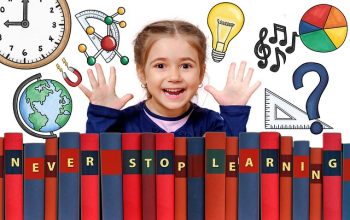The sudden shift to remote learning due to global health crises has dramatically transformed education, with Local Tutoring and Education Services quickly adapting from in-person to virtual formats. Students now demand flexible, personalized online learning facilitated by technology like interactive platforms, algorithms, and digital resources. Local tutoring platforms connect students with qualified educators, offering tailored instruction and bridging geographical barriers. Online education software provides tools for real-time classes, content management, adaptive learning, and collaboration. Effective virtual classrooms leverage active participation, personal connections, and engaging visuals to enhance student engagement and satisfaction. Measuring success in remote learning requires innovative assessment tools, immediate feedback, one-on-one support, regular check-ins, peer review, and collaborative projects to ensure high-quality education.
In today’s digital era, the shift to remote learning has transformed education. “Online Education Solutions for Remote Learning” explores this evolving landscape, focusing on local tutoring platforms as key enablers. We delve into the features and benefits of online education software, highlighting best practices for creating engaging virtual classrooms. Furthermore, we examine assessment strategies and feedback mechanisms crucial for measuring success in remote learning environments, emphasizing the integral role of local tutoring and education services.
- Understanding the Shift to Remote Learning
- The Role of Local Tutoring Platforms
- Features and Benefits of Online Education Software
- Creating an Engaging Virtual Classroom Experience
- Measuring Success: Assessment and Feedback in Remote Learning
Understanding the Shift to Remote Learning

The sudden shift to remote learning has brought about a significant transformation in education, driven primarily by technological advancements and the need for social distancing during global health crises. Traditional Local Tutoring and Education Services have had to adapt quickly to this new reality, transitioning from in-person sessions to virtual classrooms. This change isn’t merely about adopting digital tools; it involves restructuring teaching methodologies to cater to diverse learning needs in an online environment.
Students now expect flexible, accessible education that aligns with their schedules and lifestyles. Online solutions offer a range of benefits, including personalized learning experiences tailored through advanced algorithms, interactive platforms facilitating real-time communication between educators and students, and digital resources that are readily available at any time. This evolution presents both opportunities and challenges for Local Tutoring and Education Services to redefine how they engage with their communities, ensuring quality education remains accessible regardless of geographical barriers.
The Role of Local Tutoring Platforms

Local tutoring platforms play a pivotal role in enhancing online education solutions for remote learning. These platforms connect students with qualified educators from their own communities, offering personalized instruction tailored to individual needs and preferences. By leveraging technology to bridge the physical gap, local tutoring services ensure that students can access high-quality educational support without leaving home.
These platforms not only facilitate one-on-one or small group sessions but also provide a sense of community and familiarity. Local tutors often have deeper insights into their students’ cultural contexts and learning styles, allowing for more effective teaching strategies. Moreover, they are readily available to address immediate concerns, offer extra help during challenging topics, and foster continuous learning and improvement. The integration of local tutoring into online education solutions creates a comprehensive remote learning experience that combines technology’s reach with human connection’s warmth.
Features and Benefits of Online Education Software

Online education software has emerged as a powerful tool, transforming the way knowledge is disseminated, especially in the realm of remote learning. These platforms offer a myriad of features tailored to cater to diverse educational needs, making local tutoring and education services more accessible than ever before. From interactive video conferencing for real-time classes to robust content management systems, these tools ensure that learning can occur seamlessly, regardless of physical distance.
One of the key benefits is their ability to foster personalized learning experiences. With features like adaptive learning algorithms, educators can tailor lessons to individual student needs, ensuring that each learner receives targeted instruction. Additionally, these platforms facilitate collaboration through discussion boards and virtual study groups, fostering a sense of community among students, much like local education services but on a digital scale. This enhanced interaction enriches the learning process, making online education an engaging and effective alternative to traditional classrooms.
Creating an Engaging Virtual Classroom Experience

Creating a virtual classroom experience that keeps students engaged is paramount for online education success, especially when competing with distractions at home. Local tutoring and education services can leverage interactive tools like live video conferencing, breakout rooms, and gamified learning platforms to mimic in-person dynamics. Teachers should incorporate active participation through discussions, polls, and quizzes to maintain focus and foster a sense of community. Utilizing these strategies ensures that remote learners stay connected, engaged, and motivated, ultimately enhancing their educational outcomes.
Beyond technology, personalizing the virtual classroom environment is key. Instructors can create a welcoming atmosphere by introducing themselves warmly, sharing relevant personal experiences, and using engaging visuals or icebreakers to connect with students on a human level. This approach builds rapport and makes remote learning feel more intimate, contributing to higher student retention and satisfaction.
Measuring Success: Assessment and Feedback in Remote Learning

Measuring success in remote learning environments is a multifaceted challenge, particularly when it comes to assessment and feedback mechanisms. Unlike traditional classroom settings, where teacher observation and direct interaction provide a clearer picture of student understanding, online education requires innovative approaches to gauge progress effectively. This includes leveraging digital tools for formative assessments that offer real-time insights into students’ comprehension levels. Such tools can range from interactive quizzes and polls within video conferencing platforms to more sophisticated adaptive learning software that tailors content based on individual performance.
Feedback in remote learning should be immediate, constructive, and personalized. Local tutoring and education services play a crucial role here by providing one-on-one support to students who might struggle with complex concepts or need extra encouragement. Regular check-ins with tutors allow for ongoing assessment of student engagement and progress, enabling targeted interventions when needed. Furthermore, utilizing peer review and collaborative projects can foster a sense of community while offering diverse perspectives on learning outcomes, enhancing the overall quality of education delivered remotely.
The shift to remote learning has opened doors for innovative online education solutions, especially with the support of local tutoring platforms. These digital tools offer a range of features that enhance engagement, facilitate interactive teaching, and provide structured assessments. By leveraging online education software, educators can create vibrant virtual classrooms, ensuring students receive quality learning experiences despite physical distances. Integrating these modern approaches into traditional education services not only adapts to current needs but also paves the way for more accessible and effective learning outcomes.



